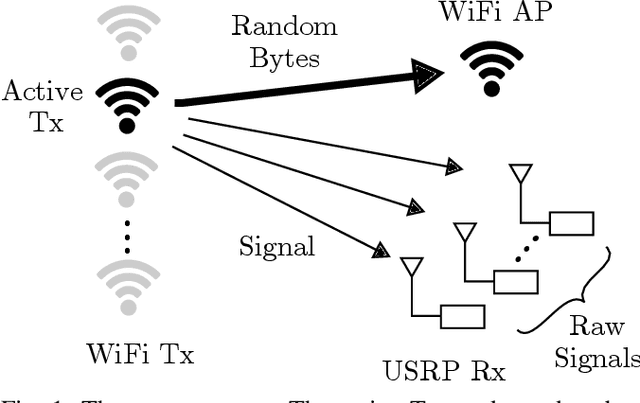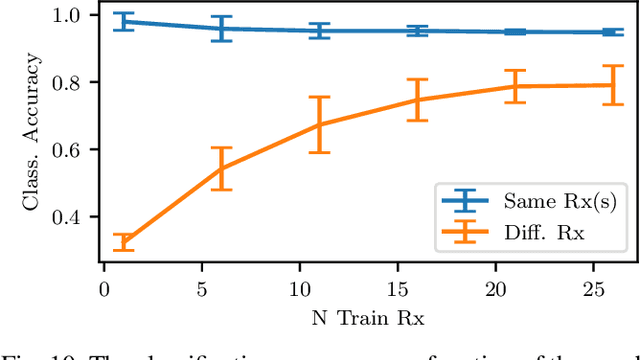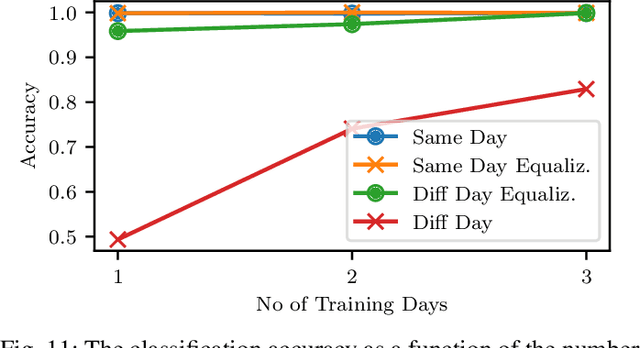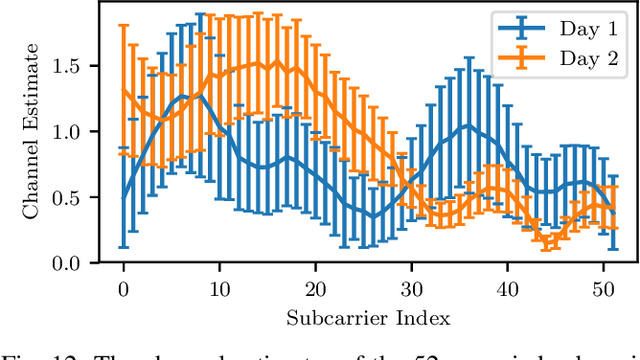WiSig: A Large-Scale WiFi Signal Dataset for Receiver and Channel Agnostic RF Fingerprinting
Paper and Code
Jan 12, 2022



RF fingerprinting leverages circuit-level variability of transmitters to identify them using signals they send. Signals used for identification are impacted by a wireless channel and receiver circuitry, creating additional impairments that can confuse transmitter identification. Eliminating these impairments or just evaluating them, requires data captured over a prolonged period of time, using many spatially separated transmitters and receivers. In this paper, we present WiSig; a large scale WiFi dataset containing 10 million packets captured from 174 off-the-shelf WiFi transmitters and 41 USRP receivers over 4 captures spanning a month. WiSig is publicly available, not just as raw captures, but as conveniently pre-processed subsets of limited size, along with the scripts and examples. A preliminary evaluation performed using WiSig shows that changing receivers, or using signals captured on a different day can significantly degrade a trained classifier's performance. While capturing data over more days or more receivers limits the degradation, it is not always feasible and novel data-driven approaches are needed. WiSig provides the data to develop and evaluate these approaches towards channel and receiver agnostic transmitter fingerprinting.
 Add to Chrome
Add to Chrome Add to Firefox
Add to Firefox Add to Edge
Add to Edge